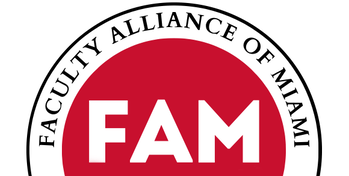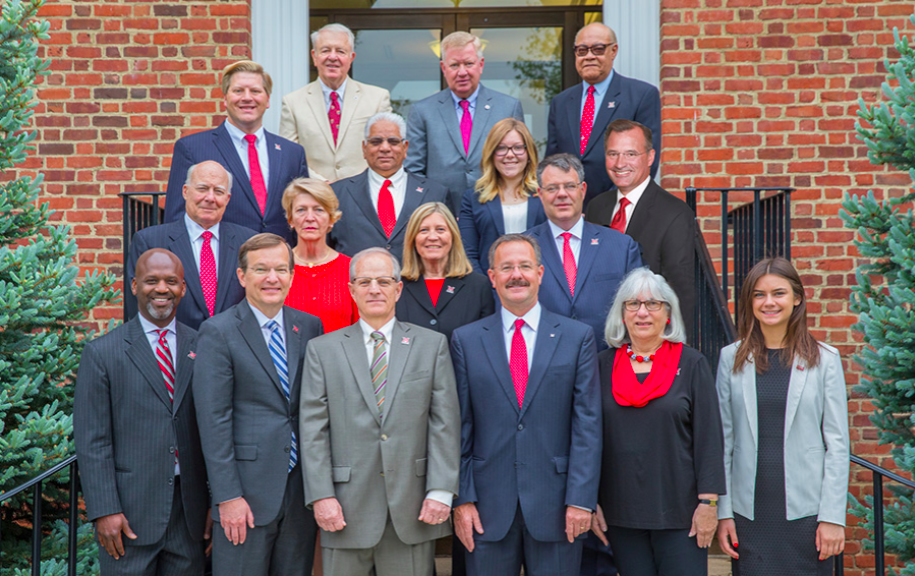What happened at today’s public meeting of the Board of Trustees was a remarkable example of the problems with shared governance at Miami, and clear evidence of the need to pass the Faculty Assembly Resolution in its entirety.
The Board was presented with a resolution supported by 95% of faculty — the Faculty Assembly Resolution on Shared Governance and Budget Transparency, which proposed that (a) Miami abide by the guidelines in the Statement on Governance of Colleges and Universities approved by the Association of Governing Boards of Colleges and Universities (of which Miami is a member) and (b) two non-voting faculty be added to the Board of Trustees. (The latter would align us with other public universities in the state including Ohio University, Cleveland State University and University of Cincinnati.)
It took the Board a total of three minutes to hear and dispense with the resolution. Listen to the recording.
The Board’s decision
The Board referred the question of abiding by national shared governance guidelines to its Academic/Student Affairs committee. We are glad to see the Board move forward with this part of the resolution and will be watching progress closely.
As for the question of adding faculty to the Board of Trustees, Chair David Budig said that because the change involved a change to Ohio Code, the decision was outside its purview. That is, the Board evaded the question.
Faculty voices go unheard
The Trustees’ justification for its decision not to support adding faculty to the Board relies on a significant misunderstanding — one that, if faculty had been present and able to speak on the resolution, could quickly have been cleared up.
Faculty have acknowledged all along that a change to Ohio Code is necessary. It is obvious that changes to Ohio Code on Miami’s Board of Trustees should start with the support of the Board. The Board can simply initiate a conversation with Oxford’s Ohio representatives to move a change to Ohio Code. Such a change would move forward easily with the Board’s support, and would likely be impossible without it. Ohio Code on Miami’s BoT membership was amended as recently as 2015. It is false to suggest that the decision is outside the Board’s purview.
Miami needs genuine shared governance
The misunderstanding could have been cleared up in seconds. Why wasn’t it? Because faculty have no representation as a body to the Board, and were not permitted to speak at the meeting.*
What happened at this meeting is clear evidence of the need to pass the Faculty Assembly Resolution in its entirety.
Shared governance practices at Miami were skewered at today’s meeting by the president of Associated Student Government, Jannie Kamara, who told the board that her experience with shared governance “has been frustrating, as communication and shared access to information across the board has been an issue.” We heartily agree.
What’s next?
We will of course be asking the Board to reconsider. This isn’t over! If faculty stand strongly together, we will win.
UPDATE (August 8, 2021): The Board has made its decision on the other part of the resolution, the call for Miami to align shared governance practices with the AGB/ACE/AAUP Statement on Government of Colleges and Universities. It’s a partial win for faculty. More here.
*A form was provided for comment in advance of the meeting — but the public has no way of knowing whether the Board reads the comments submitted. What’s more, public comment at board meetings happens in public not only so that the public may communicate with the Board, but so that the public hears what is communicated with the Board. It’s not in the spirit of Ohio’s public meeting regulations to have public comment restricted to a private channel.


Leave a Reply